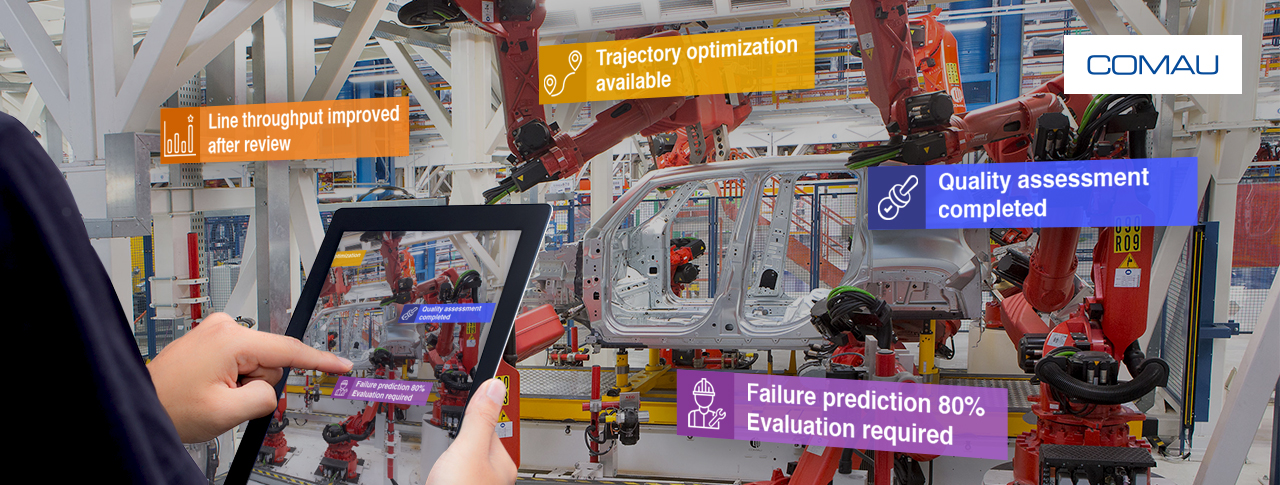- MUSKETEER aims to create a federated, interoperable machine learning platform that preserves data privacy and is efficient enough to be deployed in real-world contexts
- Comau is tasked with training dedicated machine learning modules in the field of robotics for the MUSKETEER cloud platform
- Early results of the ongoing project show marked improvements in algorithm quality and performance when using multiple datasets
Grugliasco (Turin), November 19, 2020 – Comau will leverage its culture of innovation when collaborating with other key players as part of the MUSKETEER pan-European consortium. The project aims to alleviate data sharing barriers by providing secure, scalable, encrypted analytics over decentralized datasets using machine learning. In this context, Comau, tasked with reinforcing and validating dedicated machine learning modules in the field of robotics, has completed the first test case with decidedly positive results.
The test case was based on a machine learning module featuring two Comau manufacturing datasets that had been privacy-protected and could therefore be exchanged on the MUSKETEER cloud platform without the need to share confidential data. Comau then verified the increase in algorithm accuracy stemming from the shared dataset compared to when the algorithm only had access to the individual datasets. Now, the industrial automation leader seeks to train a welding quality assessment algorithm using large datasets from multiple factories. The goal is to harness welding point quality data and use it to both automatically identify potential quality issues during the welding process and to optimize the robot maintenance schedules.
Access to the meta information and sensor data, which is taken from the welding gun systems located in different places, is key to enhancing the strength and quality of the machine learning module. The datasets themselves remain stored locally and no proprietary or confidential information is revealed. The module, however, which is enhanced with selected parameters from multiple datasets, should enable Comau to obtain better algorithm accuracy. More importantly, given that the interoperable learning module is privacy-preserving, even competitor companies can safely use the smart algorithm to support their machinery status monitoring and improve the quality of their individual welding processes.


